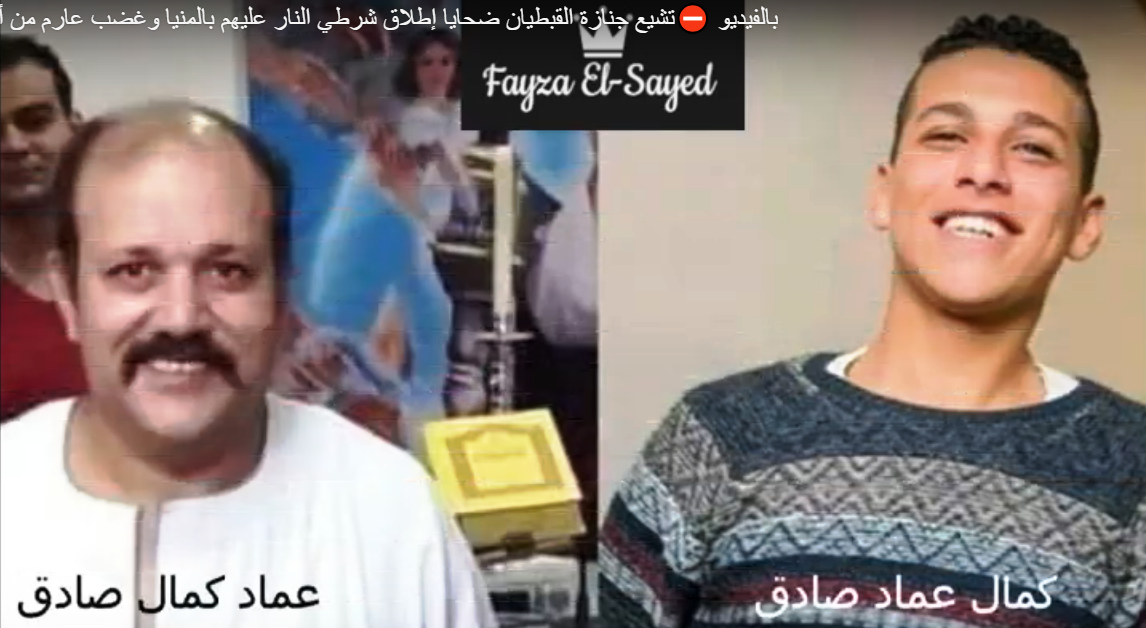More common are incidents such as that which transpired in the village of Beni Suef a few months back: a Muslim “policeman tasked with guarding the church from extremists instead aggressively entered the church and hurled insults at the congregation, calling them infidels. The other policemen reportedly remained outside of the church during the incident.” One member of the church said, “The Christian villagers are very distressed and want a strong stand from official persons.”

The murdered Christian father, ‘Imad, and his son, Kamal.
Unfortunately, “official persons” of all sorts tend not to be much better. According to the World Watch List (2018), Egyptian “officials at any level from local to national” are “strongly responsible” for the “oppression” of Egypt’s Christians. “Government officials,” the report adds, “also act as drivers of persecution through their failure to vindicate the rights of Christians and also through their discriminatory acts which violate the fundamental rights of Christians.”
While the authorities themselves are sometimes the persecutors, as in this most recent incident — or the ongoing phenomenon of Muslim military men killing Christian soldiers on account of their faith—they more often function as enablers, allowing a culture of impunity to thrive.
Earlier today Coptic Bishop Makarious likened the killing of two Christians at the hand of an officer guarding their church as having “a fox guard the hen house.” He added that this incident is worse than the St. Samuel Monastery attacks—where scores of Copts were massacred by Islamic terrorists on two separate occasions—as it involves, not outlaws, but a lawman.
All this begs the question: whereas it may be understandable that President Sisi cannot eliminate terrorism—after all, terrorists operate surreptitiously and work “in the shadows”—what about the fact that his very own government openly persecutes and occasionally even murders Coptic Christians—all right under his nose?



691187 252538Amazing post will probably be posting this on my blog today maintain up the excellent function. 31820